revolutionaries
Bill Haywood
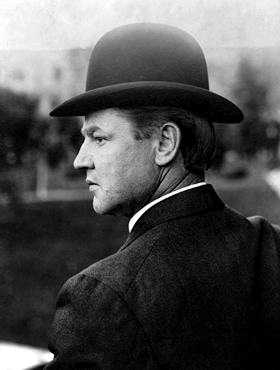
On this date in 1869, William Dudley “Big Bill” Haywood was born in Salt Lake City, Utah Territory. In 1896, when working in an Idaho silver mine, Haywood joined the Western Federation of Miners and became active in the union. By 1900 he was already a member of the union’s General Executive Board. Haywood was an advocate for industrial unionism, uniting all workers in “one big union,” and was a founding member of the Industrial Workers of the World (Wobblies) in 1905.
Haywood advocated direct action and strikes and was involved in many strikes, where he used innovative tactics in order to attract the attention of the press. He had been involved with the Socialist Party of America but he and many IWW members wanted to focus on direct action and radical revolution instead of electoral politics and split from the Socialists in 1913. Haywood was also an advocate for racial unity in the labor movement, bringing black and white workers in segregated states into IWW-affiliated unions.
In 1917, Haywood and 164 other IWW members were charged under the Espionage Act of 1917 for “conspiring to hinder the draft, encourage desertion, and intimidate others in connection with labor disputes.” Judge Kenesaw Mountain Landis presided over the five-month trial. Haywood was convicted and sentenced to 20 years in prison but skipped bail and fled to the newly formed Soviet Union.
Haywood served as a labor adviser to Lenin’s government until 1923, when Stalin rose to power. He did not speak Russian, and his Russian wife did not speak English. He died in 1928 from complications of alcoholism, diabetes and a stroke. After his cremation, his ashes were split between the Kremlin Wall necropolis in Moscow and Chicago, where they were buried near the Haymarket Square Martyr’s Monument.
“To me [Christianity] was all nonsense, based on that profane compilation of fables called the Bible.”
— "Bill Haywood's Book: The Autobiography of Big Bill Haywood" (1929)
Sonia Johnson
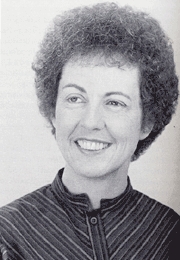
On this date in 1936, Sonia Ann Johnson, née Harris, was born a fifth-generation Mormon in Malad, Idaho. She graduated from Utah State University and married Rick Johnson, then pursued her M.A. and Ed.D. degrees from Rutgers University. She taught English at American and foreign universities, working part-time as a teacher while accompanying her husband on overseas jobs.
The family returned to the U.S. in 1976, buying a house in Virginia, one of the states that had not ratified the Equal Rights Amendment. Johnson became such an ardent supporter of the ERA that she was excommunicated by the Church of Jesus Christ of Latter-day Saints in 1979. She exposed the role of the wealthy Mormon Church in sabotaging passage of the ERA. She went on a 37-day hunger strike in the Illinois statehouse in 1982 during the last days of the ERA countdown to symbolize how “women hunger for justice.”
Johnson ran on a feminist ticket for U.S. president in 1984 as the candidate of the Citizens Party, becoming the first third-party candidate to qualify for primary matching funds. In countless speeches, she pointed out, “Nobody’s ever fought a revolution for women.” She wrote eloquently of her experiences in From Housewife to Heretic (1981). In a 1982 speech to the Freedom From Religion Foundation, she said, “I have to admit that one of my favorite fantasies is that next Sunday not one single woman, in any country of the world, will go to church. If women simply stop giving our time and energy to the institutions that oppress, they would have to cease to do so.”
Her marriage ended amid tensions around her ERA advocacy and she started a feminist collective in an old monastery near Albuquerque, N.M. Membership dwindled until only she and Jade DeForest were left. They moved to Arizona and have been together ever since, according to a news story in the Salt Lake Tribune (Jan. 19, 2019).
Johnson, who is estranged from her four children, last published a book in 2010, The SisterWitch Conspiracy.
“Did I believe in God? The answer was no. All my conventional beliefs fell off me like a big, sloppy, unnecessary overcoat, and my real self emerged.”
— Johnson, on leaving Mormonism behind, Salt Lake Tribune interview (Jan. 19, 2019)
Robert Emmet
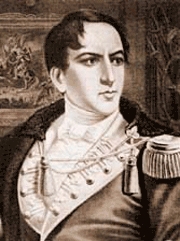
On this date in 1778, Robert Emmet, the Irish patriot and infidel, was born in Dublin to a prosperous Protestant family. His father was a physician. Emmet attended Trinity College in Dublin until he joined the United Irishmen. He fled to France in 1800 after the Irish Rebellion of 1798 was crushed. There, Emmet embraced Deism and met Napoleon and Talleyrand.
For organizing an aborted uprising against the British upon his return to Ireland in 1803, Emmet was condemned to death. Refusing the offer of a cleric’s ministrations on the way to his execution, Emmet told him, “I appreciate your motives, and I thank you for your kindness, but you merely disturb the last moments of a dying man unnecessarily.”
He had been sentenced to be hanged, drawn and quartered, as was customary for conviction of treason. The next day he was hanged and then beheaded in front of St. Catherine’s Church in Dublin at age 25. (D. 1803)
“I am an infidel from conviction, and no reasoning can shake my unbelief.”
— Emmet speaking to a minister on the way to the gallows, "History of the Irish Rebellion in 1798" by William Hamilton Maxwell (1845)
Rosa Luxemburg
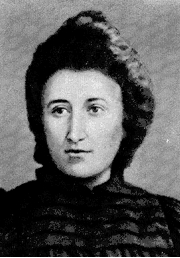
On this date in 1871, Rosa Luxemburg was born in Zamość, Poland, to a middle-class Jewish family. A revolutionary agitator by her teens, she moved to Switzerland, in part to avoid possible imprisonment. She studied at the University of Zurich, receiving her doctorate in 1898. From Warsaw, Luxemburg tried to help the Russian revolution. She wrote more than 700 pamphlets, articles, speeches and books, advocating mass strikes by proletariats.
She was in and out of prison, once for advocating during World War I that German soldiers turn their guns on the government and overthrow it. In 1919 she and two leaders of the German Communist Party, which Luxemburg helped found, were arrested. She was knocked out, shot to death and thrown in a canal. She was 47.
Although socialism, not freethought, was her life’s passion, she wrote the article “Socialism and the Churches” in 1905, first published by the Polish Social Democratic Party. Luxemburg, who strongly believed in freedom of conscience, sought to show that the church, originally considered a refuge for workers, was now clearly oppressing them. (D. 1919)
“The clergy, no less than the capitalist class, lives on the backs of the people, profits from the degradation, the ignorance and the oppression of the people. ”
— Luxemburg, "Socialism and the Churches" (1905)
Mikhail Bakunin
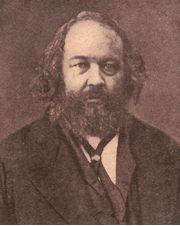
On this date in 1814, Mikhail Alexandrovich Bakunin was born in Russia. He left the military to study philosophy, traveling as a young man to Paris, where he met Karl Marx and such artists and writers as George Sand and Proudhon. Bakunin participated in the French and German revolutions of 1848. The following year he was arrested, convicted and sentenced to death in Dresden for various revolutionary efforts. His death sentence was commuted, but he was then extradited to Austria, where he was tortured and beaten, convicted and resentenced to death. Again, his sentence was commuted to life imprisonment.
Bakunin was next extradited to Russia, where he spent 11 years in several notorious prisons, including exile to Siberia, before escaping. He eventually made his way via Japan to the United States. Bakunin lived in a variety of Western European countries, finally settling in Geneva in 1868.
He wrote his major works after his imprisonment, including Statism and Anarchy, 1872, in which he called for women’s equality, free education and the abolishment of hereditary property. His most notable freethought essay is “God and the State” (1883). In it, Bakunin called Jehovah, of all gods, “certainly the most jealous, the most vain, the most ferocious, the most unjust, the most bloodthirsty, the most despotic, and the most hostile to human dignity and liberty.” In this article, later published in English by Emma Goldman‘s Mother Earth Publishing (1916), Bakunin wrote: “All religions, with their gods, their demigods, and their prophets, their messiahs and their saints, were created by the credulous fancy of men who had not attained the full development and full possession of their faculties.”
The powerful manifesto averred that as long as there is a master in heaven, humans will be slaves on Earth. (D. 1876)
“On behalf of human liberty, dignity and prosperity, we believe it our duty to recover from heaven the goods which it has stolen and return them to earth.”
“If God is, man is a slave; now, man can and must be free; then, God does not exist.”
“A jealous lover of human liberty, and deeming it the absolute condition of all that we admire and respect in humanity, I reverse the phrase of Voltaire, and say that, if God really existed, it would be necessary to abolish him.”— Mikhail Bakunin, "God and the State" (1883)
Ernesto “Che” Guevara
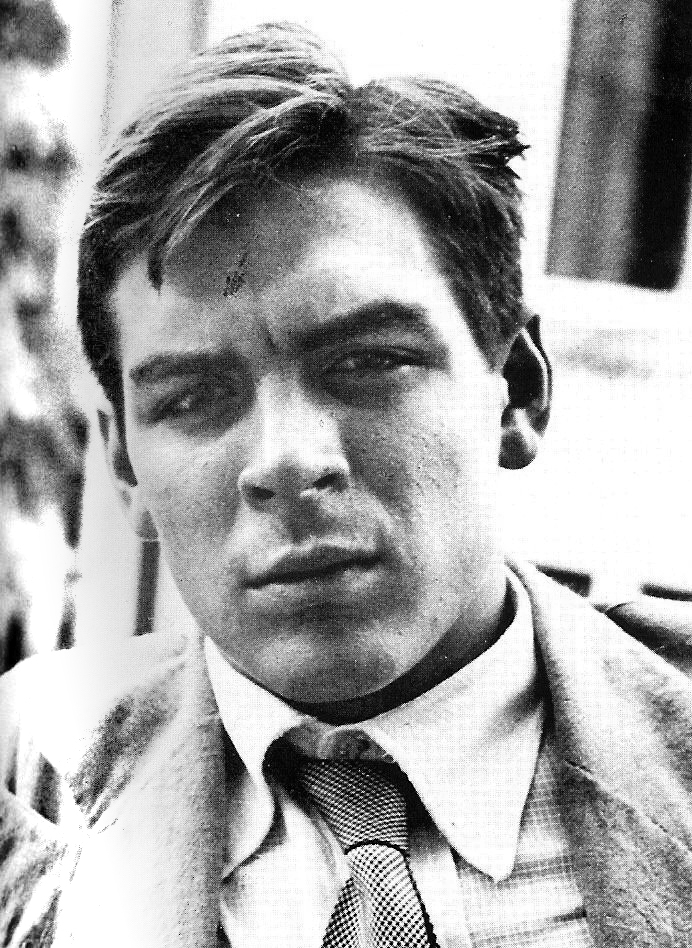
On this date in 1928, revolutionary Ernesto “Che” Guevara was born in Rosario, Argentina. Guevara began to study medicine in 1948 at the University of Buenos Aires but interrupted his studies to take trips around Latin America. It was on one of these trips that he wrote his famous Motorcycle Diaries. On his journey he became more aware of poverty and inequality throughout Latin America, an experience that strongly influenced him throughout his life. He resumed his studies in Argentina in 1953 and finished medical school, almost immediately resuming travel through South and Central America.
Guevara met Raul Castro in Mexico and soon after joined the Cuban guerillas to fight against dictator Fulgencio Batista. He married Aleida March in 1959 and they had five children: Hilda, Aleida, Camilo, Celia and Ernesto. Guevara became a leader in Cuba’s revolution and as a military adviser led troops. As part of Fidel Castro’s government, Guevara was put in charge of La Cabana Fortress prison in 1959. It is believed between 156 and 550 people connected with Bastista were executed there on Guevara’s orders, outraging the international community. He was named finance minister and president of the National Bank, where, in order to show his disdain for money, he signed bills with just his nickname Che.
He was known for advocating for the poor, for being uncompromising, confrontational and a “true believer” in communism, killing political enemies without compunction. Guevara employed guerrilla warfare in Cuba, Bolivia and the Congo. The CIA-backed Bolivian military executed him on Oct. 9, 1967, while he was trying unsuccessfully to incite the people of Bolivia to rebellion. One of the most controversial figures of the 20th century, he is remembered by some as a cultural icon and by others as a ruthless ideologue and murderer. (D. 1967)
” I am all the contrary of a Christ. … I fight for the things I believe in, with the weapons at my disposal and try to leave the other man dead so that I don’t get nailed to a cross or any other place.”
— Guevara, letter to his mother, July 15, 1956
Emma Goldman
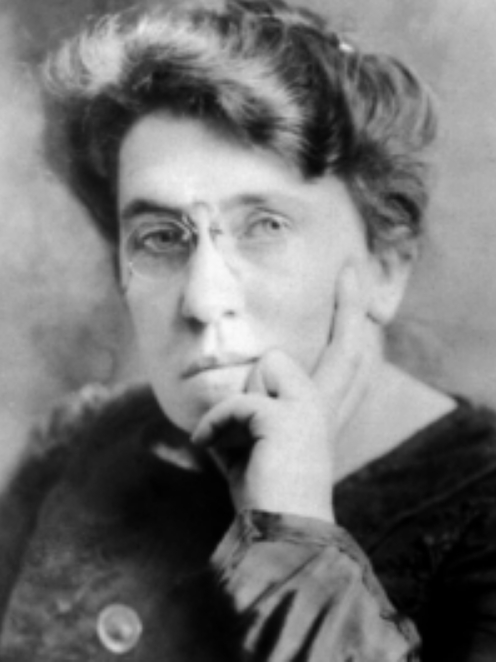
On this date in 1869, Emma Goldman was born in Russia. “Since my earliest recollection of my youth in Russia I have rebelled against orthodoxy in every form,” she wrote in her 1934 article “Was My Life Worth Living?” Told by her father that “a Jewish daughter” needed only to prepare for marriage, the defiant 17-year-old emigrated with her sister to New York, taking factory work. After the 1887 Haymarket bombing and execution of arguably innocent anarchists in Chicago, Goldman threw herself into her “ecstatic song” of political oratory.
She and Alexander “Sasha” Berkman dedicated themselves to a “supreme act” for which Berkman spent 14 years in prison — attacking Henry Clay Frick, chair of Carnegie Steel Corp. Goldman would later repudiate her youthful conviction that the ends justified the means. She was arrested numerous times as a famed orator and went underground when a self-professed anarchist madman in 1901 assassinated President William McKinley, saying he had once attended one of her lectures.
In 1906 she launched the journal Mother Earth. In 1916 she was sent to prison for advocating that “women need not always keep their mouths shut and their wombs open.” In 1917 she was arrested, convicted and served two years in prison for setting up the No Conscription League. A warden said women worshipped her like an idol because she nursed and fought for women prisoners.
Goldman wrote in 1897: “I demand the independence of woman, her right to support herself; to live for herself; to love whomever she pleases, or as many as she pleases. I demand freedom for both sexes, freedom of action, freedom in love and freedom in motherhood.”
At age 50 in 1919, she and 247 other “Reds” were deported to the Soviet Union through the efforts of FBI Director J. Edgar Hoover. Thoroughly disillusioned with Bolshevism, she became a British citizen in 1925. Maureen Stapleton portrayed her in the 1981 movie “Reds” that garnered her several Best Actress nominations and awards.
Golman wrote her autobiography in 1931. Her two essays, “The Failure of Christianity” (1913) and “The Philosophy of Atheism” (1916) contain her freethought views. She died in Toronto after suffering a stroke at age 70. (D. 1940)
PHOTO: Goldman, c. 1911, Library of Congress.
“I do not believe in God, because I believe in man. Whatever his mistakes, man has for thousands of years been working to undo the botched job your god has made. There are … some potentates I would kill by any and all means at my disposal. They are Ignorance, Superstition, and Bigotry — the most sinister and tyrannical rulers on earth.”
— Goldman, 1898 Detroit speech titled "Living My Life"
Giuseppe Garibaldi
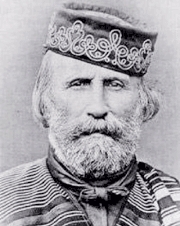
On this date in 1807, Giuseppe Garibaldi was born in Nice, France. Although his father wanted him to be a priest, Garibaldi set out to sea as a youth. He took part in the conspiracy of 1834, for which he was forced to flee from Italy. After adventurous travels, the famed Italian patriot took a major role in work to emancipate Italy from outside rule. After the failed revolution of 1848, he traveled to America. He returned with a band of revolutionaries in 1859, then again in 1862 and 1870. He was elected to the Italian Parliament in 1872. Garibaldi called the Vatican “the Sacred Shop” and rejected all creeds. D. 1882.
“Dear Friends, Man has created God; not God man. Yours ever, Garibaldi.”
— Garibaldi letter, 1880. Cited by Joseph McCabe in "A Biographical Dictionary of Modern Rationalists"
Lakshmi Sahgal
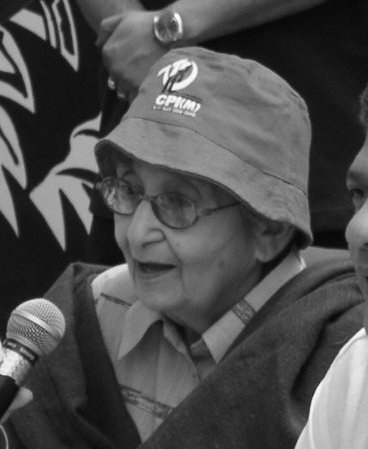
On this date in 1914, revolutionary Lakshmi Sahgal, née Lakshmi Swaminathan, was born in Madras, India. She studied medicine at Madras Medical College and graduated in 1938. In 1940 she opened a medical clinic for poor Indian migrant laborers in Singapore. When Japan began occupying Singapore in 1942, Sahgal used her medical skills to helped wounded Indian prisoners of war. When the Indian nationalist leader Subhas Chandra Bose arrived in Singapore to form the Indian National Army to fight for Indian independence from the British, Sahgal met with him to see how women could be included in the movement.
Sahgal created and trained the only all-female military unit in Singapore, called the Rani of Jhansi regiment. The regiment was never used in combat and the women in the unit mainly worked as nurses. The British military later arrested Sahgal, who was a captain in the Indian National Army. She was in prison for less than a year. The British chose to release her because of anti-British sentiment in India.
Sahgal continued to practice as a doctor, undercharging her mostly poor patients. In 1971 she joined India’s communist party and became an active voice in Indian politics. She was elected to India’s upper house of parliament in 1971 and unsuccessfully ran for president on a platform of equality in 2002. She was a supporter of women’s rights and education and advocated for ending the practice of dowries, child marriages and allowing widows to remarry.
Sahgal married a fellow army officer, Prem Kumar Sahgal, in 1947. They were married until his death in 1992 and had two children. Sahgal died in 2012 at age 97.
“I have always been an atheist. My parents were atheists. It doesn’t bother me if somebody is religious. My problem is when religion is used to institutionalize other things.”
— Sahgal's daughter Subhasini Ali, politician and labor activist, Rediff.com interview (Aug. 8, 2001)
Jawaharlal Nehru
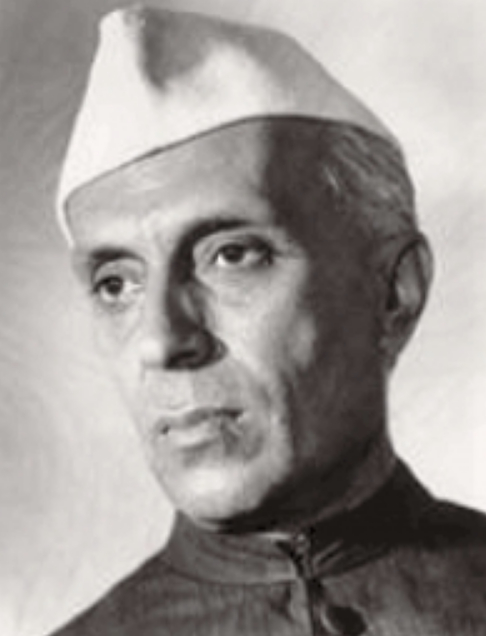
On this date in 1889, India’s first prime minister Jawaharlal Nehru was born in Allahabad to a humanist father and Hindu mother. Nehru was educated in England and at Cambridge University and practiced law. He became an early protégé of Gandhi in the 1920s and spent much of 1930 to 1936 in jail for civil disobedience campaigns. He was imprisoned for 32 months during the Quit India campaign, during which he and Gandhi pledged support for Great Britain during World War II only if India were freed. Upon the liberation and creation of India (Aug. 15, 1947), Nehru became the nation’s first prime minister and led the nation through its turbulent beginnings for 18 years.
Nehru, a rationalist and agnostic, believed in industrialization, education and mildly socialistic policies. Under his tutelage, India adopted a constitution which decreed separation of church and state. During the Cold War he appealed to the U.S. and the USSR to start nuclear disarmament. Nehru authored several books, including his autobiography.
Nehru married Kamala Kaul in 1916. Their only daughter Indira was born in 1917. Kamala gave birth in 1924 to a boy who only lived a week. She died in 1936. Indira Gandhi became prime minister in 1966. Nehru died of a heart attack at age 74 in New Delhi. (D. 1964)
“Essentially, I am interested in this world, in this life, not in some other world or a future life. Whether there is such a thing as a soul, or whether there is a survival after death or not, I do not know; and, important as these questions are, they do not trouble me in the least.”
— Nehru, "The Discovery of India," 1946 (written while imprisoned by the British)
